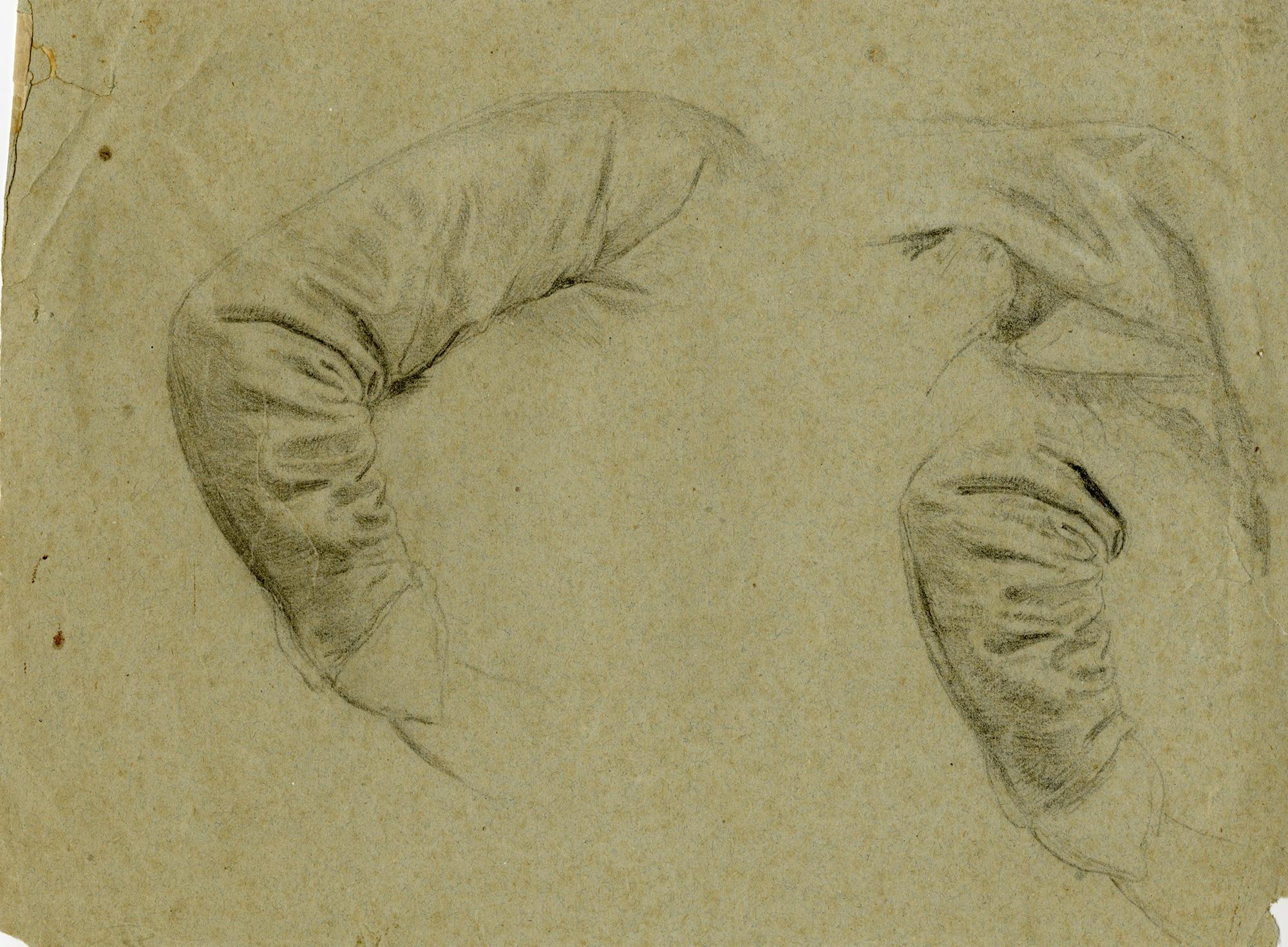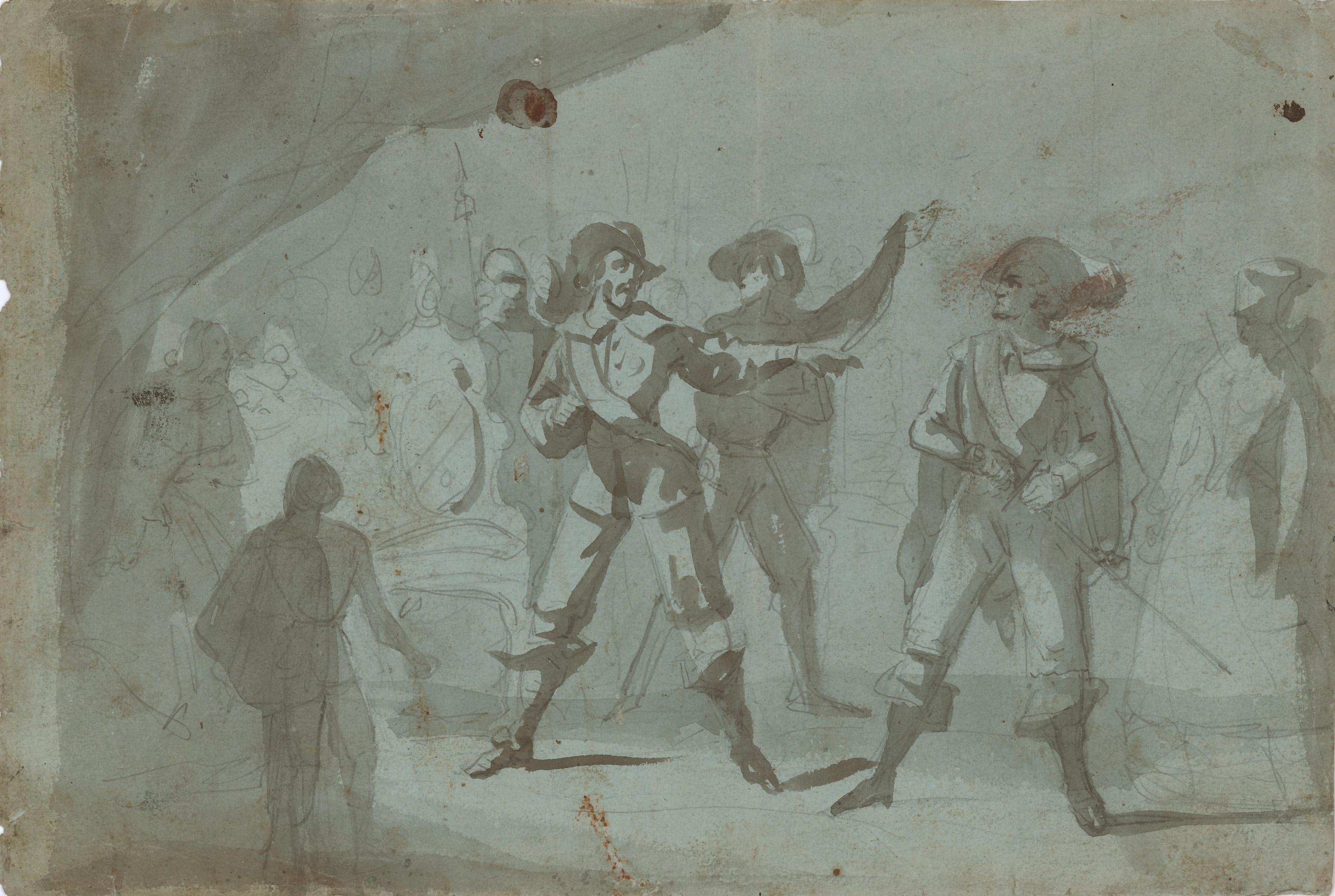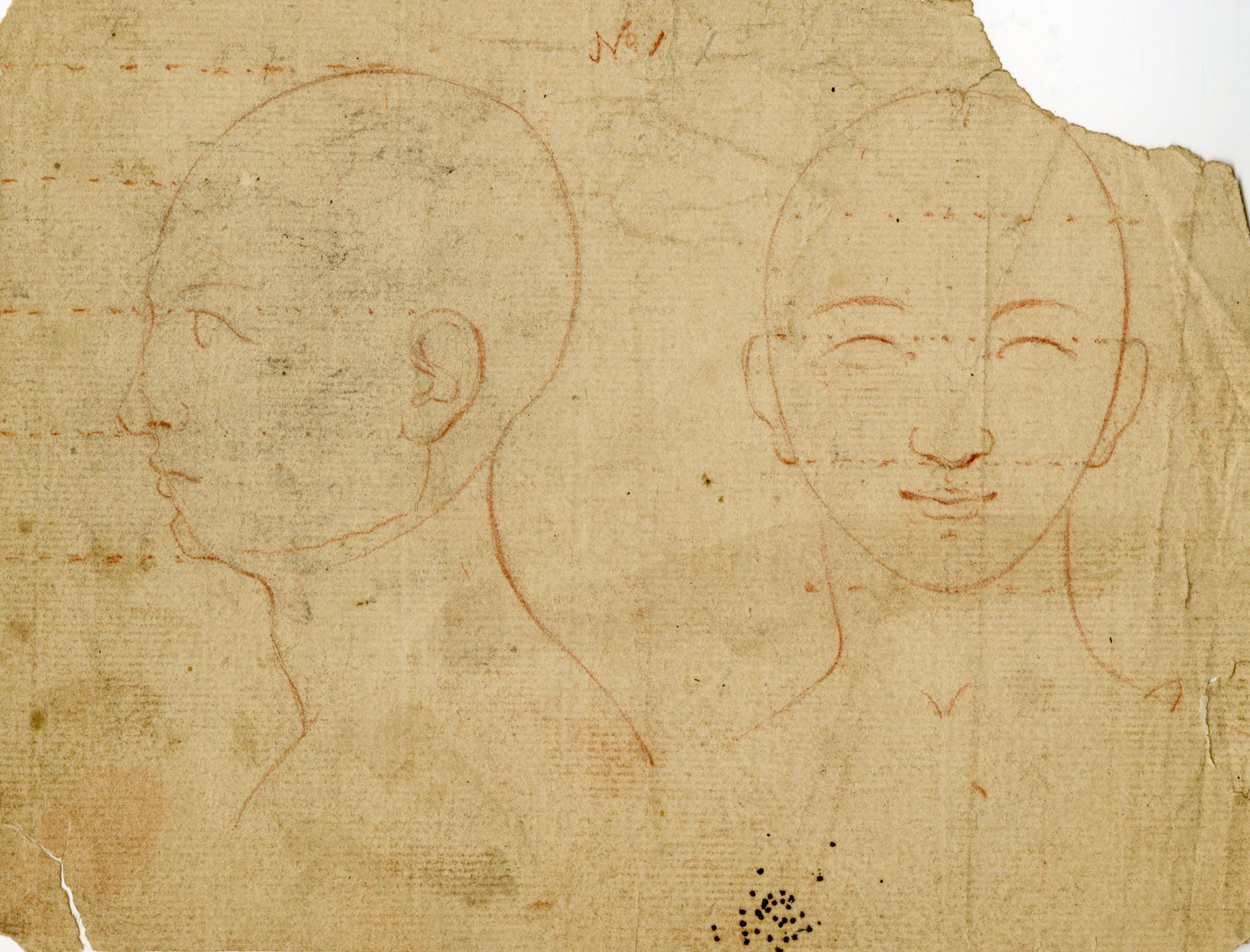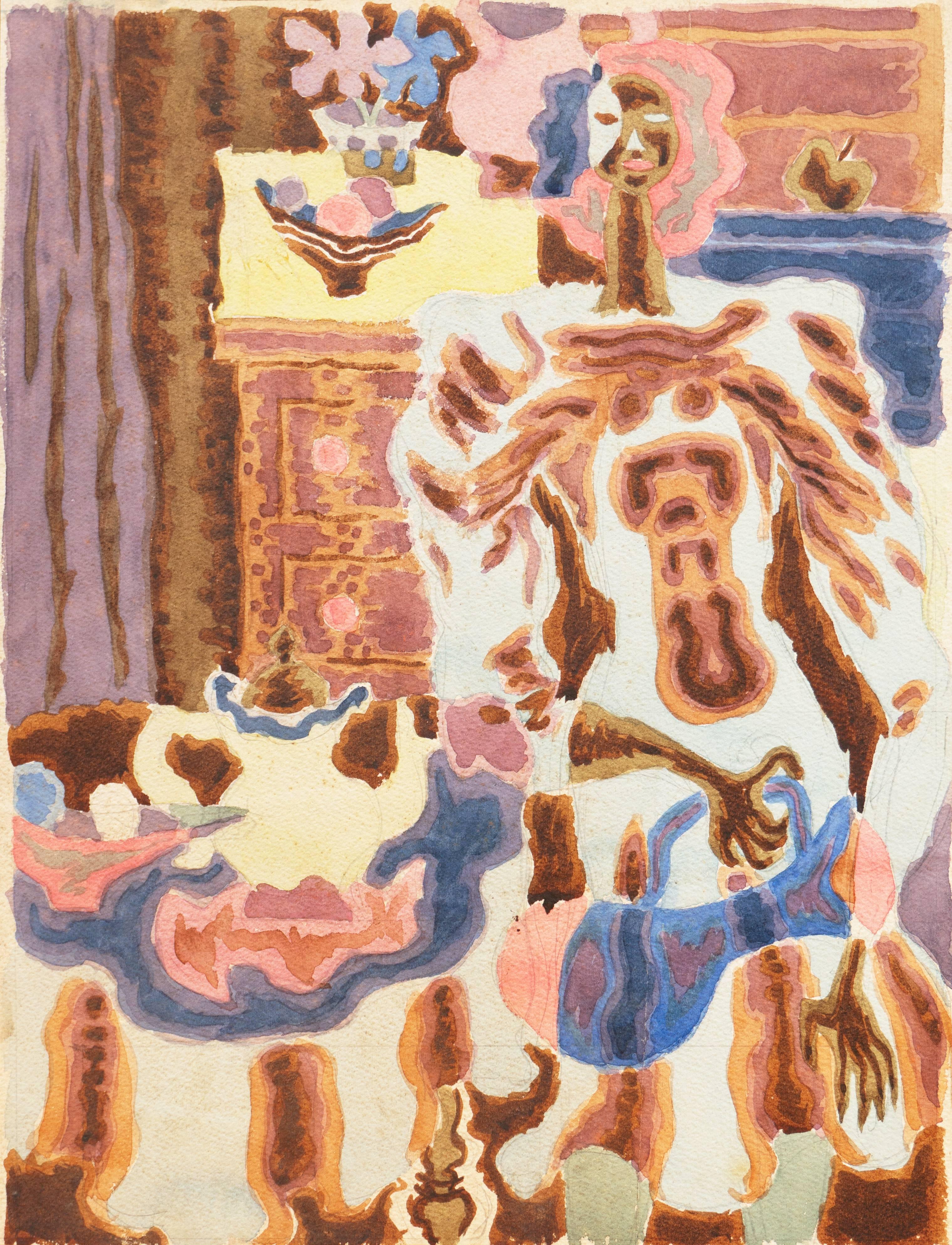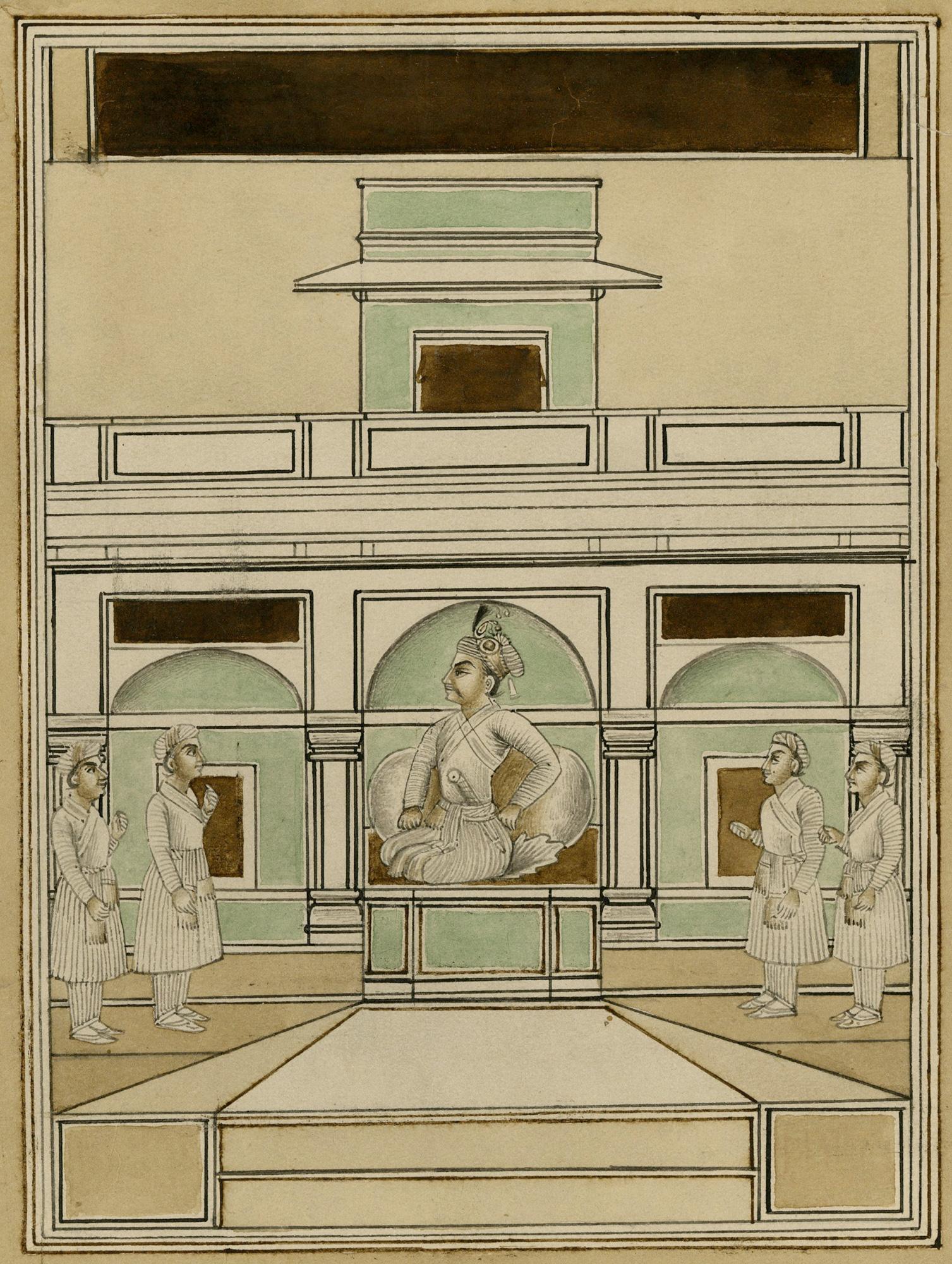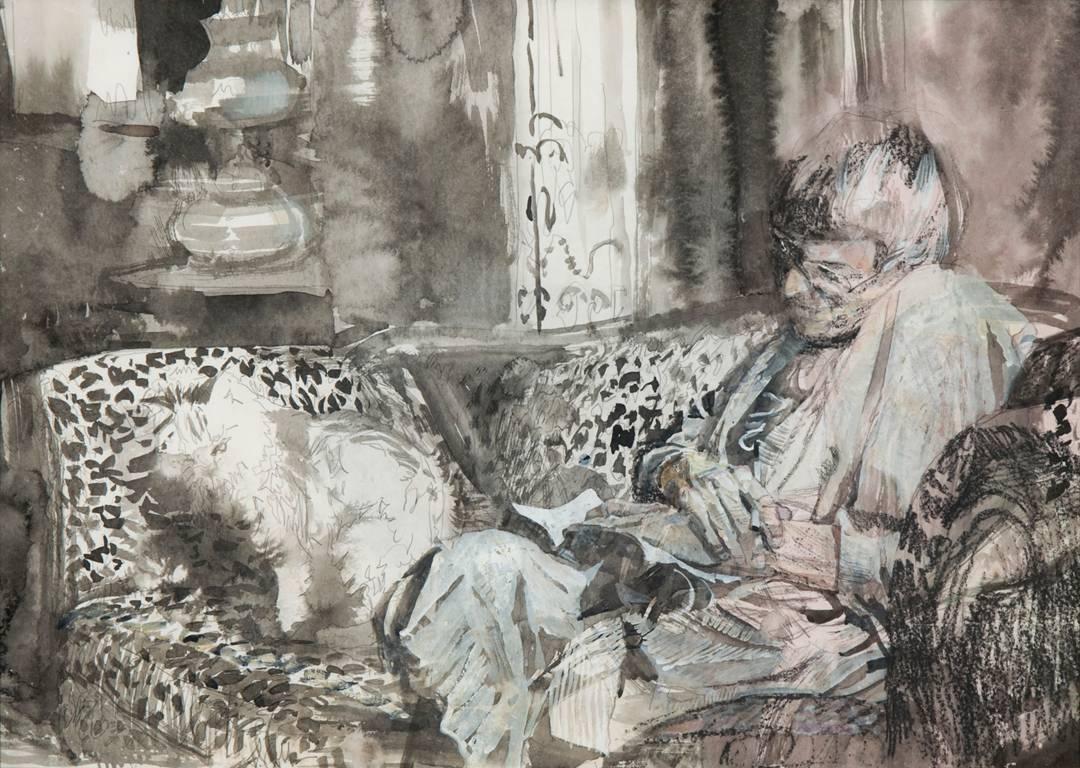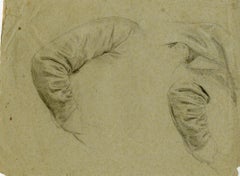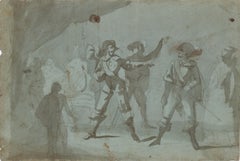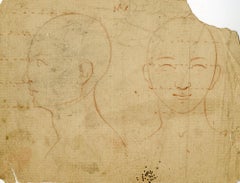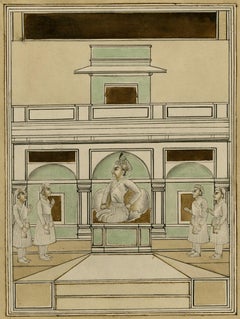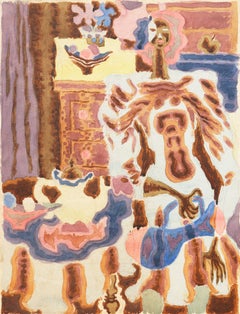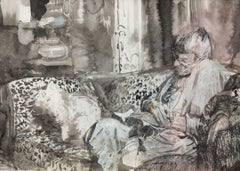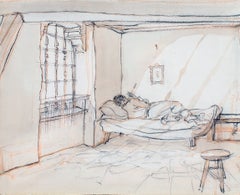Items Similar to Il Ratto della Sabine – Italian School 18th century
Want more images or videos?
Request additional images or videos from the seller
1 of 7
UnknownIl Ratto della Sabine – Italian School 18th century1700
1700
$1,200
£909.96
€1,052.86
CA$1,696.24
A$1,890.99
CHF 986.23
MX$22,866.40
NOK 12,397.35
SEK 11,730.38
DKK 7,858.55
About the Item
An intense scene of an incident in the legendary history of Rome.
Italian School 18th century, circa 1700.
Ink and wash in brown and grayish black ink on cream laid paper, 12 1/8 x 16 1/4 inches (307 x 402 mm), the full sheet. Scattered light areas of foxing throughout the sheet, and one cluster of significant foxing outside of the image area in the top-center sheet, various handling creases and soft folds, all unobtrusive and consistent with age. Titled in pencil in another hand in the lower sheet area.
According to Roman historian Livy, the abduction of Sabine women occurred in the early history of Rome shortly after its founding in the mid-8th century BC and was perpetrated by Romulus and his predominantly male followers; it is said that after the foundation of the city, the population consisted solely of Latins and other Italic peoples, in particular male bandits. With Rome growing at such a steady rate in comparison to its neighbors, Romulus became concerned with maintaining the city's strength. His main concern was that with few female inhabitants there would be no chance of sustaining the city's population, without which Rome might not last longer than a generation. On the advice of the Senate, the Romans then set out into the surrounding regions in search of wives to establish families with. The Romans negotiated unsuccessfully with all the peoples that they appealed to, including the Sabines, who populated the neighboring areas. The Sabines feared the emergence of a rival society and refused to allow their women to marry the Romans. Consequently, the Romans devised a plan to abduct the Sabine women during the festival of Neptune Equester. They planned and announced a festival of games to attract people from all the nearby towns. According to Livy, many people from Rome's neighboring towns – including Caenina, Crustumerium, and Antemnae – attended the festival along with the Sabines, eager to see the newly established city for themselves. At the festival, Romulus gave a signal by "rising and folding his cloak and then throwing it round him again," at which the Romans grabbed the Sabine women and fought off the Sabine men.
- Creation Year:1700
- Dimensions:Height: 12.09 in (30.7 cm)Width: 15.83 in (40.2 cm)
- Medium:
- Movement & Style:
- Period:
- Condition:
- Gallery Location:Middletown, NY
- Reference Number:Seller: BH14731stDibs: LU1979216834402
About the Seller
5.0
Gold Seller
Premium sellers maintaining a 4.3+ rating and 24-hour response times
Established in 2004
1stDibs seller since 2022
72 sales on 1stDibs
Typical response time: 7 hours
- ShippingRetrieving quote...Shipping from: Middletown, NY
- Return Policy
Authenticity Guarantee
In the unlikely event there’s an issue with an item’s authenticity, contact us within 1 year for a full refund. DetailsMoney-Back Guarantee
If your item is not as described, is damaged in transit, or does not arrive, contact us within 7 days for a full refund. Details24-Hour Cancellation
You have a 24-hour grace period in which to reconsider your purchase, with no questions asked.Vetted Professional Sellers
Our world-class sellers must adhere to strict standards for service and quality, maintaining the integrity of our listings.Price-Match Guarantee
If you find that a seller listed the same item for a lower price elsewhere, we’ll match it.Trusted Global Delivery
Our best-in-class carrier network provides specialized shipping options worldwide, including custom delivery.More From This Seller
View AllStudies of arms in draped sleeves
Located in Middletown, NY
Charcoal and graphite on grayish laid paper, 10 1/2 x 7 3/4 inches (265 x 195 mm), the full sheet. Scattered light, minor and unobtrusive foxing, several non-archival cellophane tape...
Category
Mid-18th Century Italian School Figurative Drawings and Watercolors
Materials
Handmade Paper, Laid Paper, Graphite, Charcoal
The Dethroning / Italian School, 18th Century
Located in Middletown, NY
Graphite and grayish ink wash on bluish wove paper, 7 x 10 1/2 inches (177 x 265 mm) (matrix). Scattered surface soiling, adhesive residue, dog-eared corners, and scattered edge tears along left margin, outside of image area. Paper is braced on the verso with two pages from a mid 19th century book with illustrations by C.Perrin. One image depicts a scene of a group of soldiers representing the Holy Roman Empire...
Category
Late 18th Century Italian School Figurative Drawings and Watercolors
Materials
Handmade Paper, Ink, Graphite
Studio di volto (Study of a boy's face, 2 views) Florentine School 18th century
Located in Middletown, NY
An 18th century Florentine study of a head, circa 1700
Red crayon on light-weight laid paper with a partial Pro Patria watermark with Hollandia and a rampant lion, 5 5/8 x 7 1/2 inc...
Category
Early 18th Century Italian School Figurative Drawings and Watercolors
Materials
Laid Paper, Crayon
Geometric Palace Interior - Mughal School, 20th Century
Located in Middletown, NY
A fascinating orientalist art deco composition.
Pen and brownish brown ink with gouache on cream wove paper, 9 5/8 x 7 1/2 inches (245 x 190 mm), the full sheet. In good condition w...
Category
Early 20th Century Rajput Interior Drawings and Watercolors
Materials
Ink, India Ink, Gouache, Handmade Paper
Design for a theatre fresco with fancy plasterwork - early 18th century French S
Located in Middletown, NY
Pen and sepia ink on cream laid paper, 8 3/4 x 5 3/8 inches (222 x 136 mm). Scattered paper tape repairs on the verso in the area of the upper left corner, and along the right sheet...
Category
Early 18th Century French School Interior Drawings and Watercolors
Materials
Ink, Laid Paper
Portrait of Raffaello / Italian School
Located in Middletown, NY
Graphite and ink on handmade, watermarked C & I Honig laid paper, 8 15/16 x 6 3/4 inches (226 x 170 mm). Signed illegibly in ink, lower margin. Scattered light creasing and surface...
Category
18th Century Italian School Portrait Drawings and Watercolors
Materials
Handmade Paper, Ink, Graphite
You May Also Like
'Woman Seated', Paris, Louvre, Académie Chaumière, California, LACMA, SFAA
By Victor Di Gesu
Located in Santa Cruz, CA
Bearing estate stamp, verso, for Victor Di Gesu (American, 1914-1988) and painted circa 1955.
Watercolor figurative showing an abstracted view of a woman standing in an interior hol...
Category
1950s Post-Impressionist Figurative Drawings and Watercolors
Materials
Paper, Watercolor, Graphite
Cleo McGee Grading Papers
By John Cobb
Located in Dallas, TX
“What he has learned from the art of the museums, Cobb has fully assimilated and modified in the development of his own personal vision. And while enriched by these historical perspe...
Category
2010s Contemporary Interior Drawings and Watercolors
Materials
Paper, Sumi Ink, Watercolor, Pencil
The Prince's Room
By Willy Pogany
Located in Buffalo, NY
Born in Szeged, Hungary, he became one of the better known and successful illustrators of the Golden Age of Illustration, completing over 100 books. Among them are "A Treasury of Verse for Little Children," "The Rubaiyat of Omar Khayyam," and "The Rime of the Ancient Mariner." He is probably best known for pen and ink drawings of mythology subjects geared towards children.
He studied at Budapest Technical University and attended art schools in Munich and Paris before moving to London at age 23. In 1907, he began illustrating children's books and did a series of annual gift books...
Category
1940s Realist Figurative Drawings and Watercolors
Materials
Gouache, Graphite, Pen, Watercolor
"The Bachelor Girls' Christmas, " Story Illustration
By Edmund Marion Ashe
Located in Fort Washington, PA
Medium: Watercolor and Gouache over Graphite
Signature: Signed "E.M. Ashe" Lower Left
"The Bachelor Girls' Christmas." Illustration for unknown publication. Not dated.
Category
20th Century Interior Drawings and Watercolors
Materials
Watercolor, Gouache, Graphite
Family Dinner Time 1932 American Classic Interior Design
Located in Soquel, CA
Classic Interior design and Family Dinner by Architectural Digest illustrator David Mode Payne (American, 1907-1985). The scene depicted is an interio...
Category
1930s American Impressionist Figurative Drawings and Watercolors
Materials
Watercolor, Laid Paper
$1,397 Sale Price
35% Off
Antique 19th Century Realism Orientalist Watercolor Paper on Board
By Antonio Rivas
Located in Jacksonville, FL
Arabian Charger Seller" by Antonio Rivas (Spanish, 1845-1911) stands as an exquisite example of Orientalism, a 19th-century artistic movement that sought to depict the rich and diverse cultures of the East. Rivas, a master of his craft, delves into this genre with a keen eye for detail and a dedication to authenticity that brings the scene to life.
In this antique watercolor on paper...
Category
19th Century Realist Figurative Drawings and Watercolors
Materials
Watercolor, Board, Laid Paper
